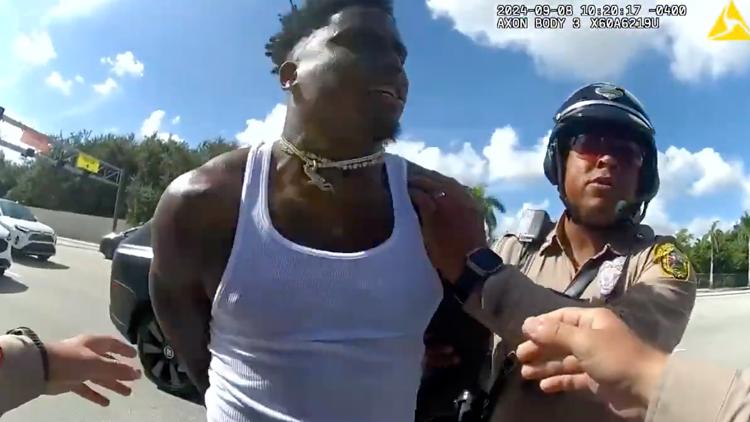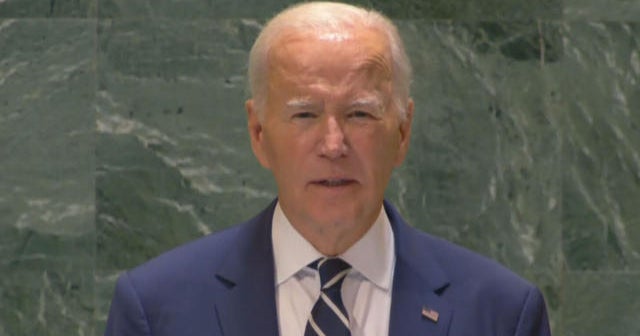Kare11
Woman sentenced to 20 years in plot to kidnap Monique Baugh

Elsa Segura was headed for a second trial after the Minnesota Supreme Court overturned two convictions and a life sentence in prison in Baugh’s murder.
MINNEAPOLIS — A former probation officer was sentenced to 20 years in prison as part of a plea deal Tuesday, allowing her to avoid a second trial in the kidnapping and murder of real estate agent Monique Baugh.
Elsa Segura sat expressionless at Tuesday’s sentencing after pleading guilty to one count of kidnapping to commit great bodily harm. As part of her plea deal, Segura took responsibility for her role in Baugh’s death, admitting she used a fake name and a “burner” phone to set up a house showing so a rival of Baugh’s boyfriend and his friends could kidnap and kill her.
Hennepin County District Court Judge Mark Kappelhoff handed down a sentence of 240 months (12 years), giving Segura credit for 1,499 days already served. “You could have been the person to warn Ms. Baugh not to go to that showing,” Kappelhoff told the court. “But instead, you chose another path that eventually led to Monique Baugh’s death.”
KARE 11’s Lou Raguse says before the sentencing, a tribute video was playing in the courtroom when one of Baugh’s family members began shouting at the defendant. “She doesn’t understand what she’s done… I want to hear her say it!” the woman shouted before court security led the woman from the courtroom. She was allowed to re-enter five minutes later, and the judge called her loss of composure “completely understandable and appropriate.”
Segura declined the opportunity to speak in court.
Tuesday’s plea hearing eliminated the need for a second trial for Segura after the Minnesota Supreme Court overturned two convictions and the accompanying life sentence after finding prosecutors failed to provide sufficient evidence and gave the jury erroneous instructions. Segura remained behind bars, however, as two other convictions involving the kidnapping-murder plot stood.
In the early hours of Jan. 1, 2020, Baugh was found shot to death in a Minneapolis alley. Three other defendants were sentenced to life without parole in what prosecutors said was a scheme aimed at getting revenge against Baugh’s boyfriend, Jon Mitchell-Momoh, a recording artist who had a falling out with Lydon Wiggins, a former music business associate of his. who was also a drug dealer.
Baugh’s boyfriend, who Wiggins allegedly considered a snitch, was also shot but survived.
Investigators say Baugh was lured to a home she was selling in Maple Grove after Segura repeatedly called and texted her, indicating she was interested in the home. Instead, Baugh was kidnapped and taken to her home in Minneapolis. Her boyfriend was shot in front of her children, at that time ages 1 and 3.
Baugh was later found fatally shot and dumped in a nearby alley.


Lyndon Wiggens, considered by prosecutors as the mastermind of the plot, was also granted a retrial based on the same issue involving “aiding and abetting” that caused the Supreme Court to overturn Segura’s convictions. He will be in court later this week to either plead guilty to a charge of aiding and abetting first-degree murder or indicate he will move toward a second trial.
Kare11
Tyreek Hill case raises questions of driver’s rights


Civil liberties experts say it’s best to cooperate and comply with law enforcement demands, but motorists have the right to remain silent and refuse a search.
MIAMI — American drivers might universally wince or brace themselves at the sight and sound of flashing red and blue lights and blaring sirens, but all drivers have constitutional rights when pulled over on the road.
The question of one’s responsibility to comply with all instructions given by a law enforcement officer recently came up following a pregame traffic stop this month involving Miami Dolphins wide receiver Tyreek Hill.
Although Hill has acknowledged he could have handled the interaction with Miami-Dade police better, the video of him being pulled out of his car, placed on the ground and handcuffed revived a national conversation about the realities of “driving while Black.” Studies show Black motorists are more likely to face the threat or use of force by police in traffic stops like Hill did, and many Black families give a version of “the talk” to loved ones about how to interact with police officers.
“The immediate short-term goal is to get out of the encounter without being arrested, and the way to do that, again, is to communicate not just with compliance, but obedience and respect, even if you don’t think that that’s deserved,” said Georgetown University law professor Paul Butler.
Studies show people of color are often disproportionately targeted for traffic stops in the U.S., said Jenn Rolnick Borchetta, the American Civil Liberties Union’s deputy director on policing.
“They search them more often, even as the rate at which they find evidence of some wrong is lower for Black and Latino people than white people,” she said.
In 2022, Black people accounted for nearly 13% of traffic stops in California, even though they were only 5% of the state’s population. Minneapolis, a predominantly white city, found in 2020 that Black drivers accounted for nearly 80% of police searches and routine traffic stops.
Miami lawyer E.J. Hubbs said he believes both Hill and the police officers in the now-viral video of the arrest had faults in their interactions.
Body camera footage showed the officer asking Hill to roll down his window and Hill complying, Hubbs said. Hill then told the officer “to give me my ticket,” after handing him his identification, which Hubbs said was also fair.
Where things escalated was when Hill decided to roll his window back up, as the officer’s body camera footage shows.
“When Mr. Hill refused to roll down his window, that was not complying with one of his commands,” Hubbs said. “And when he was asked to exit the car, he didn’t comply with that command, at least immediately.”
Lawrence Hunter, a former Waterbury, Connecticut, police captain and law enforcement coach, added that Hill appeared confrontational when asking Miami-Dade County officers not to knock on his window.
“From that point, because of the combative nature that Tyreek Hill exposed, the officer then asked him to get out of the car,” Hunter said. “That’s an officer safety thing. He already feels that this is uncooperative. … So therefore, it is best to just get him out of the car.”
Hunter added that Hill’s refusal to keep his window down could be considered a matter of officer safety.
During a traffic stop, drivers have constitutional rights against incriminating themselves or permitting the search of their car.
The right to remain silent is the most widely known right, Borchetta said. Drivers also have the Fourth Amendment right to be free from unreasonable searches and seizure, and have the right to ask traffic officers questions.
“You don’t have to tell the police where you’re coming from or where you’re going,” Borchetta said. “If they ask to search you or your car, you can say no. And if you’re not sure whether they’re asking or telling, you can ask them that question. And they have to tell you honestly.”
Passengers can also ask if they can leave the scene of the traffic stop.
Once a driver has been pulled over, police will likely run the plates of the vehicle through a database to check whether the car has been stolen or see if any other actionable information comes up, said Hunter, the former police captain.
The officer may also take a long, hard look at the vehicle for visible contraband, weapons or drugs, he said.
The officer does have the right to ask drivers and passengers to get out of the car and can use reasonable force to make sure that happens. Officers can also pull drivers over even if they haven’t committed an infraction, as long as there’s reasonable suspicion to think the person has, according to Butler, the Georgetown University professor. This policing practice is known as a pretextual stop.
Law enforcement can sometimes take advantage of civilians’ lack of knowledge of the law, Butler added. In that case, it’s best to comply and communicate with officers, and complain later.
Drivers can also record the conversation if they feel like the interaction with the officer has been unnecessarily escalated. But they should be sure to let the officer know that they are being recorded. Asking for and writing down the officer’s badge number, time and location of the interaction is also permitted.
Kare11
Habitat for Humanity kick off new project


CEO of Twin Cities Habitat for Humanity, Chris Coleman, joined KARE 11 News at Noon to discuss all the events.
MINNEAPOLIS — Twin Cities Habitat for Humanity will soon kick off the 2024 Jimmy & Rosalynn Carter Work Project, a weeklong homebuilding event.
The project will run from Sunday, Sept. 29, through Friday, Oct. 4, and is the official launch of Twin Cities Habitat’s construction efforts on The Heights housing development on St. Paul’s Greater East Side.
The Carter Work Project occurs over President Jimmy Carter’s 100th birthday (Oct. 1).
It will be hosted by Garth Brooks and Trisha Yearwood, who will build alongside more than 4,000 volunteers across Minnesota and the country.
Twin Cities Habitat for Humanity will also host a public celebration for the Carter Work Project and to honor President Jimmy Carter’s birthday at the Build Forward Bash on Tuesday, Oct. 1, at The Armory.
CEO of Twin Cities Habitat for Humanity, Chris Coleman, joined KARE 11 News at Noon to discuss all the events.
Kare11
Minnesota native missing in remote area of Yellowstone


The National Park Service says Austin King-Henke, who grew up in Winona, was last heard from on Sept. 17, when he called a family member from Eagle Peak.
YELLOWSTONE NATIONAL PARK, Wyo. — Search efforts continue for a Minnesota native who is missing after embarking on a hike in Yellowstone.
The National Park Service says 22-year-old Austin King-Henke was last heard from around 7 p.m. on Tuesday, Sept. 17 when he called a family member from Eagle Peak, described online as the highest spot in Yellowstone and one of the most remote areas (based on distance from an established road) in the lower 48.
A news release from the National Park Service says King-Henke was dropped off by boat at Terrace Point on Saturday, Sept. 14, and spoke with a backcountry ranger on a cabin two days later at a spot that was not on his planned route. After the conversation from Eagle Peak on Sept. 17, King-Henke failed to show up for a boat that failed to pick him up on Sept. 20.
While on the summit at Eagle Peak, King-Henke described conditions as foggy and windy, with rain, sleet and hail.
Search and Rescue teams from Yellowstone and Grand Teton National Parks have been actively looking for King-Henke in the vicinity of Eagle Peak, Eagle Pass Mountain Creek Trail and Eagle Creek Trailhead in Shoshone National Forest over the past several days. Searchers located his camp and equipment Saturday evening in the upper Howell Creek area, but King-Henke was not there.
Rescue teams are using multiple helicopters and drones, and dogs on the ground in an effort to locate the missing hiker.
King-Henke is a concessions worker at Yellowstone National Park. He grew up in Winona and is a graduate of Winona-Cotter High School. His Facebook page reflects a young man who loves the outdoors and the adventures that come with it. Social media is inundated with posts hoping for his safe return.
“Come on kid, show us where you are,” wrote Austin’s grandfather Richard King. “2 helicopters, 4 boats, a drone, 48 people on the ground and a dog are all out there.”
“Think of this young man tonight and say a prayer for him and his family,” wrote poster Jill Williams. “I can’t imagine the pain they’re in right now. He’s been missing since the 17th and the search is still on. We hear the helicopters at times, wondering if they’re for him. May he be found safe soon.”
Austin’s father, Brian King-Henke, established a GoFundMe account to help him continue to play a leading role in the search effort.
Austin King-Henke is described as 6 feet tall, 160 lbs. with brown hair, hazel eyes and glasses. He was last seen wearing gray pants and a black sweatshirt. Anyone who sees him or knows of Austin’s whereabouts is asked to call the Yellowstone Interagency Communications System at 307-344-2643.




